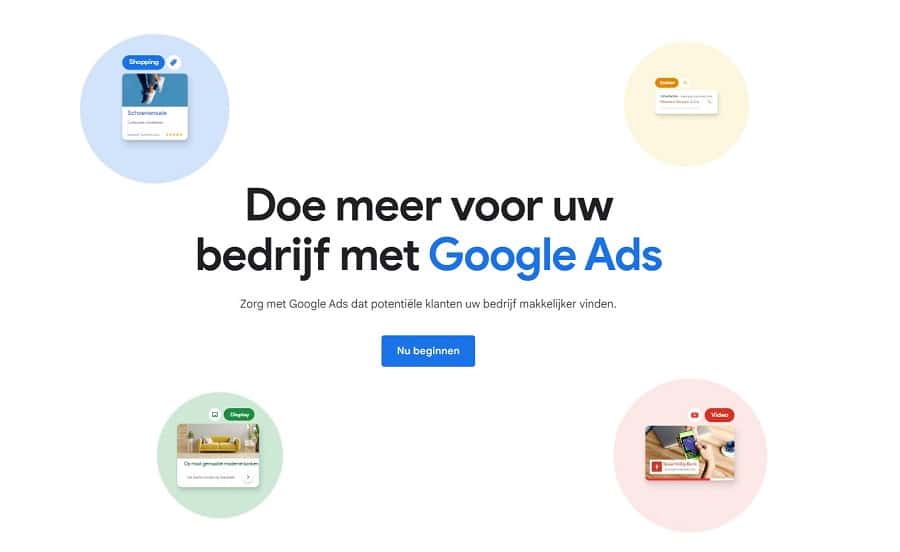Organic and paid search traffic compared
Being visible and getting people to the website is one of the daily activities of many a webmaster, after all, a website often only has the right to exist if it is actually visited. When it comes to increasing your online presence, there are two main players that everyone will already be partially familiar with: organic search traffic and paid advertising on platforms such as Google. But what exactly is the difference between the two, and which approach is best for your website? Let's delve deeper into the world of SEO and SEA to understand how they work and the benefits they offer.
Organic Search Traffic (SEO)
What is SEO?
SEO stands for Search Engine Optimization, or search engine optimization. It is the process of improving your Web site so that it ranks higher in the organic (non-paid) search results of search engines such as Google. It revolves around providing valuable content, optimizing the technical aspects of your website and getting relevant links from other sites. However, these are not the few things Google keeps an eye on for this, as there are more than 200 factors that determine whether a website is displayed and at what position. This can also vary by time of day, a user's personal results and by region. So it's often not the same for everyone, or a fixed fact on which position you are. But a snapshot.
Benefits of Organic Search Traffic
Sustainability: While building organic traffic takes time, it can be more sustainable in the long run. Once properly optimized content can generate lasting traffic.
Credibility: Organic results are often seen as more authentic and trustworthy by users because they are not influenced by ad budgets.
Cost: Obtaining organic traffic requires effort and investment in high-quality content and optimization, but there is no direct cost per click as with paid advertising. Indirectly, however, there are costs associated with this in the form of labor.
Paid Advertising (SEA)
What is SEA?
SEA stands for Search Engine Advertising, which means that advertisers pay for displaying ads in the search results of search engines. Google Ads is an example of a platform that allows advertisers to pay for clicks on their ads.
Benefits of Paid Ads
Instant Visibility: Paid ads allow you to quickly generate visibility for specific keywords or target audiences. And is not a long period of time in between. Once your ad is approved, you are instantly visible, as long as you pay.
Control: Advertisers have control over where and when their ads are displayed, as well as the ad budget.
Measurability: SEA provides detailed analytics and measurable results, allowing advertisers to accurately track the performance of their campaigns. And adjust and optimize as needed.
Which Strategy is Best for You?
Now that we've highlighted the core benefits of both SEO and SEA, the question naturally arises: which strategy is best for your website or business?
When to Choose SEO:
Long-term Investment: If you're willing to invest time and resources in creating high-quality content and optimizing your website, SEO can pay off in the long run. It requires perseverance, but the rewards can be lasting.
Steady Growth: SEO can offer steady, organic growth. If you're looking for a gradual but steady increase in website traffic and authority in your niche, SEO is the way forward.
Engagement and Credibility: If you value building an engaged audience and gaining credibility without depending on ad budgets, SEO can help you achieve these goals.
When to Choose SEA:
Immediate Results: If you need immediate visibility and results, especially for new product launches or specific campaigns, SEA offers the fastest route to the top of search results.
Budget and Control: For companies with a specific ad budget and need precise control over when, where and how their ads are displayed, SEA may be an appropriate choice.
Measurability and Adaptability: SEA offers comprehensive measurement tools that allow you to track and adjust campaigns in real time based on performance data.
Both approaches, SEO and SEA, have their own strengths and can even complement each other in a balanced marketing strategy. The best choice depends on your goals, timelines and available resources.
Combining SEO and SEA can be a powerful strategy. By using SEO for long-term growth and organic traffic, while using SEA for immediate visibility and targeted campaigns, you can leverage the best of both worlds.
Either way, it's important to experiment, measure and continually adapt your strategy to the changing needs of your business and the evolving algorithms of search engines.
Whatever route you choose, improving your online presence is an ongoing journey. An understanding of SEO and SEA is crucial to successfully navigating this journey and achieving your goals in the digital world.
